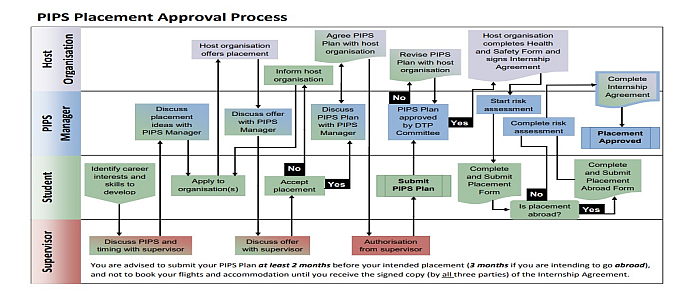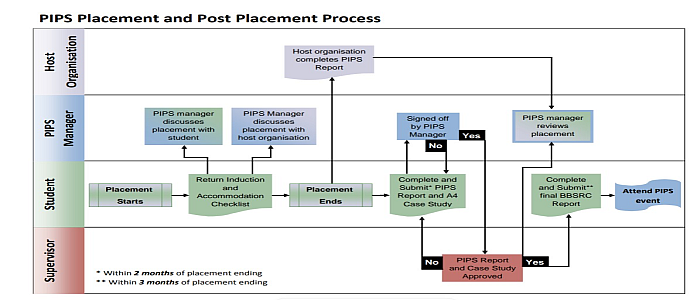Information for Supervisors
Importance of a PIPS
PIPS play a crucial role in the NWB programme and are essential to students’ overall PhD experience. As a core component of the doctoral programme, PIPS provide BBSRC-funded PhD students with valuable non-academic work experience, allowing them to apply their skills and training in a professional environment beyond academia. This experience benefits early career researchers by broadening their understanding of how their research fits within a wider context and by highlighting diverse career paths available to them post-graduation. In doing so, PIPS not only enhance students’ transferable skills but also strengthen their career readiness and adaptability.
Why PIPS are not related to PhD research project
PIPS placements are intentionally designed to be unrelated to the student’s PhD research to ensure students gain experience and develop skills that extend beyond their academic expertise. The primary aim of PIPS is not for students to conduct additional research, but rather to understand how the skills they have developed during their PhD - such as problem-solving, communication, and analytical abilities - can be applied in a range of professional environments. By working outside of academia, students can gain insights into diverse career options, enhance their adaptability, and acquire transferable skills that are broadly applicable, regardless of whether they pursue careers within or outside research fields.
While academic or research-based placements are generally discouraged, exceptions may be made if the placement offers a significantly different setting and skill set from the student’s research work.
PIPS Timing and Duration
PIPS are bespoke to each student and thus there is a great deal of flexibility around when the student should undertake their placement (subject to the needs of the host organisation). A placement can be started any time during their second year and be completed by the end of their third year. It is expected that PIPS planning will be carried out with the student and supervisor in order to minimise disruption to research/fieldwork etc.
Each PIPS placement must total the equivalent of 3 months, but students have flexibility in how this time is structured. They may complete their placement as a single 3-month block or as a series of shorter blocks over an extended period, depending on what works best for both the student and the host organisation.
This flexible structure allows the placement to fit around the student's PhD commitments and can be adapted based on the nature of the project and any specific requirements of the host. Discussions between the student, their supervisor, and the host organisation are encouraged to determine the most suitable arrangement.
Guidance and Planning your students PIPS
The PIPS scheme is coordinated collaboratively across the NWB programme. There is a dedicated PIPS administrator who will support and guide you through the PIPS process.
When your student begins planning their PIPS placement, please reach out to the relevant PIPS administrator via EMAIL for guidance on required paperwork and procedures. This will ensure the placement process runs smoothly and that both students and hosts have the necessary information and support.
PIPS Process Flowcharts


Benefits of PIPS
Professional Experience:
- Students receive practical experience outside of their PhD research, which broadens their professional skills and insights into various career paths.
Skill Development:
- The placement helps in developing transferable work-related skills that are applicable in various professional settings.
Career Exploration:
- Engaging in a PIPS enables students to explore professions they may not have considered previously, enhancing their career prospects.

